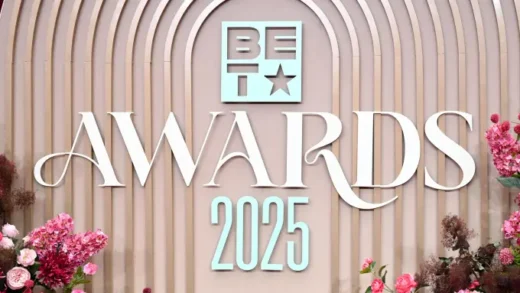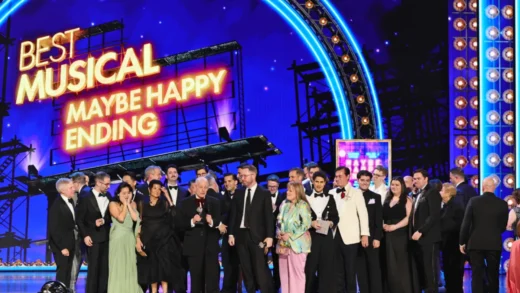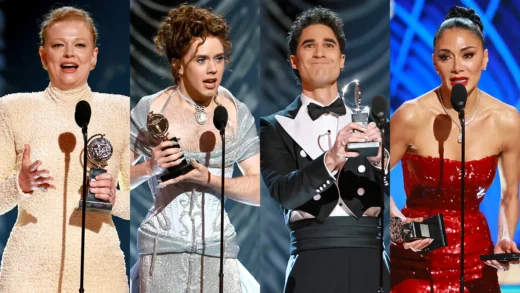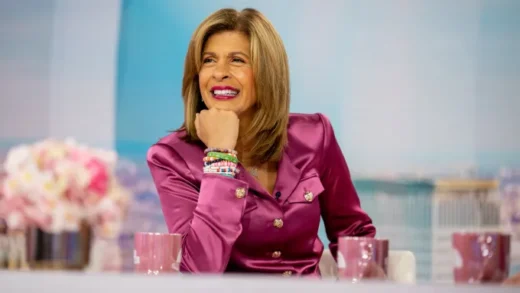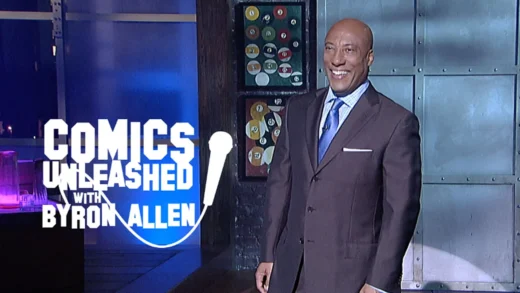The Grammy Awards still can’t figure out this hip-hop thing.
The New York Times reported earlier this week that show producer Ken Ehrlich “said that this year he offered performance slots on the show to Drake, Lamar and Childish Gambino… but they all declined. Representatives of those three artists declined to comment on whether they would attend the show.”
Ehrlich also offered a take on the relations between music’s biggest rappers and the industry’s most venerated awards show.
“The fact of the matter is, we continue to have a problem in the hip-hop world,” Ehrlich told the Times. “When they don’t take home the big prize, the regard of the academy, and what the Grammys represent, continues to be less meaningful to the hip-hop community, which is sad.”
Hip-hop and the Grammys have a famously awkward history. Although Run-D.M.C. was nominated for a Grammy in 1987 (Best R&B Performance By a Duo or Group), the Best Rap Album Grammy debuted in 1989—with DJ Jazzy Jeff & the Fresh Prince winning the award—but famous rappers boycotted the show when it was announced that the Best Rap Performance category wouldn’t be a part of the telecast. MTV held an anti-Grammy after-party hosted by Yo! MTV Raps at L.A.’s Cat & Fiddle pub that wound up being quite the TV event if you were a rap fan—especially one who never got what was so great about “Music’s Biggest Night” in the first place.
2018 should have been the heralding of a shift at the Grammys. Amongst the Album of the Year nominees there were three hip-hop-leaning acts in Jay-Z, Kendrick Lamar and Childish Gambino (albeit the latter was nominated for his acclaimed funk-soul album Awaken, My Love!). For the optimistic, it seemed to convey that the Grammy generation gap was closing as hip-hop had become more centered and there was now an increase in older voters were actively into this music. But when Bruno Mars won took home Album of the Year, it felt like more of the same ol’, same ol’, as any big pop star was likely to eclipse whichever or however many rap faves landed in the major categories. With his eight nods for his acclaimed album 4:44, Jay-Z was last year’s most-nominated artist, but went home empty-handed. The folly of Kendrick’s DAMN loss to Bruno Mars was amplified when Lamar was awarded the Pulitzer in April; and alongside such high-profile whiffs as Beyoncé’s 2017 Lemonade loss and their lengthy history of awarding the most middle-of-the-road material over the sound of the times, it’s no question why so many hip-hop and R&B artists have decided to be done with the Grammys.
When considered with outgoing chief executive of the Recording Academy Neil Portnow’s “step up” comments after last year’s show—in which only female artists won an award on-air—the Grammys have looked increasingly out of step with the times and, even when viewed through a more historical lens, the show has always been an inadequate showcase of where even the most mainstream popular music is going or has gone in any given year.
Hip-hop doesn’t need the Grammys—the music, the industry and the culture have thrived and will continue to do so with that particular awards show only having peripheral interest from the audience. But venerated institutions hold a wider cultural sway that can be effectively used to marginalize great art when such institutions aren’t held accountable for insufficient representation. Amazing women like Janelle Monae and H.E.R. are nominated for major awards this year; hip-hop-centric projects like Cardi B’s Invasion of Privacy, the Black Panther soundtrack and Drake’s Scorpion are up for Album of the Year, and Kendrick Lamar and Drake are the most-nominated artists. But the Grammys has a long way to go to make anyone believe they really “get it” when it comes to hip-hop and R&B. And they need to figure it out soon, before it becomes cooler to skip the Grammys than it is to be seen there.
(Excerpt) Read More at: TheDailyBeast.com
